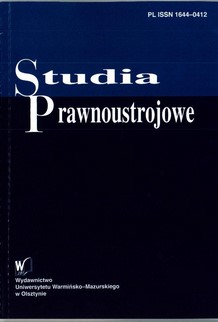Rozważania o nowym paradygmacie kryminalistyki
Reflections on the new forensic science paradigm
Author(s): Jarosław MoszczyńskiSubject(s): Methodology and research technology, Criminology
Published by: Wydawnictwo Uniwersytetu Warmińsko-Mazurskiego w Olsztynie
Keywords: forensic science; identification; subjectivity; population databases; categorical opinions;
Summary/Abstract: Forecasts for the emergence of the new forensic science paradigm appeared at the end of the first decade of the current century and were born from a confrontation of the methodology of genetic identification and classical types of forensic identifications. In the latter, it is expected that there will be a departure from the subjective assessment of the identification value of the features of the examined objects, in favour of experimental checking of their frequency. Consequently, the opinions issued should be based on statistical estimates of the likelihood of a specific feature configuration being repeated in two different objects. This is also intended to lead to only probable opinions being issued. The purpose of this article is to present the views of selected forensic scientists regarding anticipated paradigm changes and to assess the reality of postulates. DNA and other objects that are the subject of forensic research have different properties, which makes it very difficult or even impossible to build representative population databases to form the basis for statistical calculations. Thus, the anticipated transition from subjective qualitative methods to objective quantitative methods, although desirable, is in practice very limited.
Journal: Studia Prawnoustrojowe
- Issue Year: 2020
- Issue No: 50
- Page Range: 345-360
- Page Count: 16
- Language: Polish

